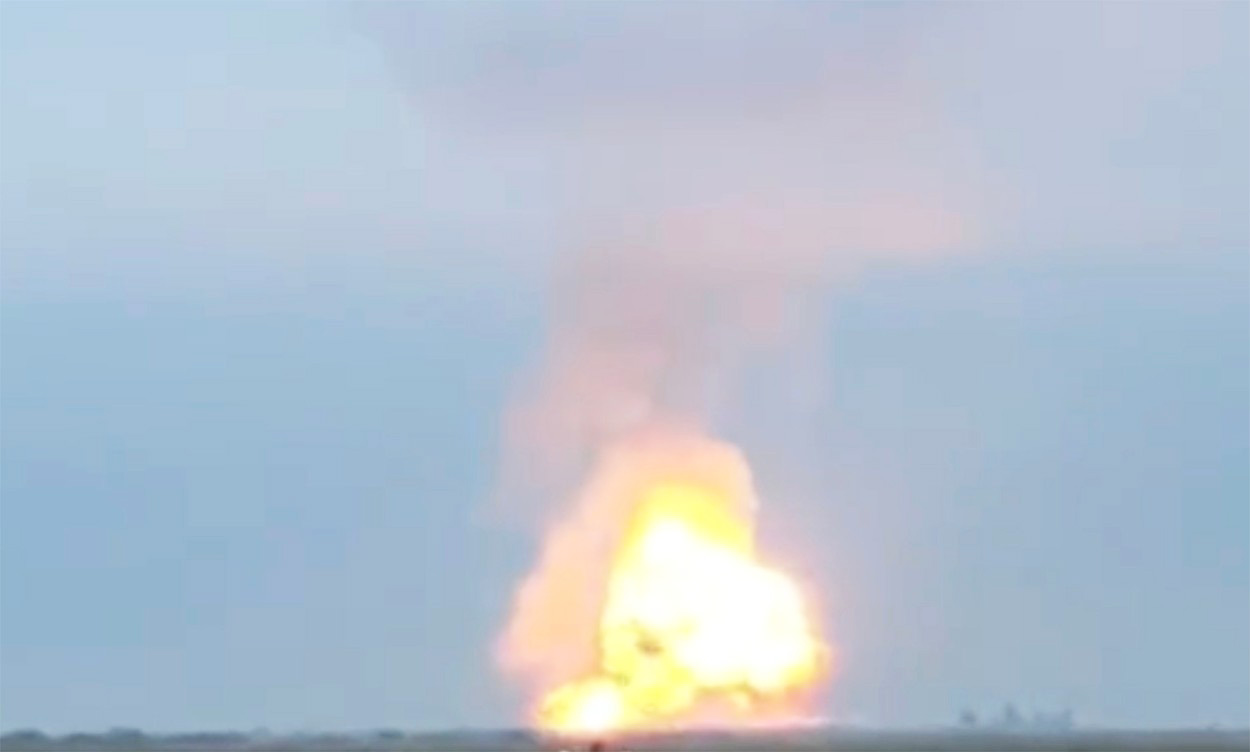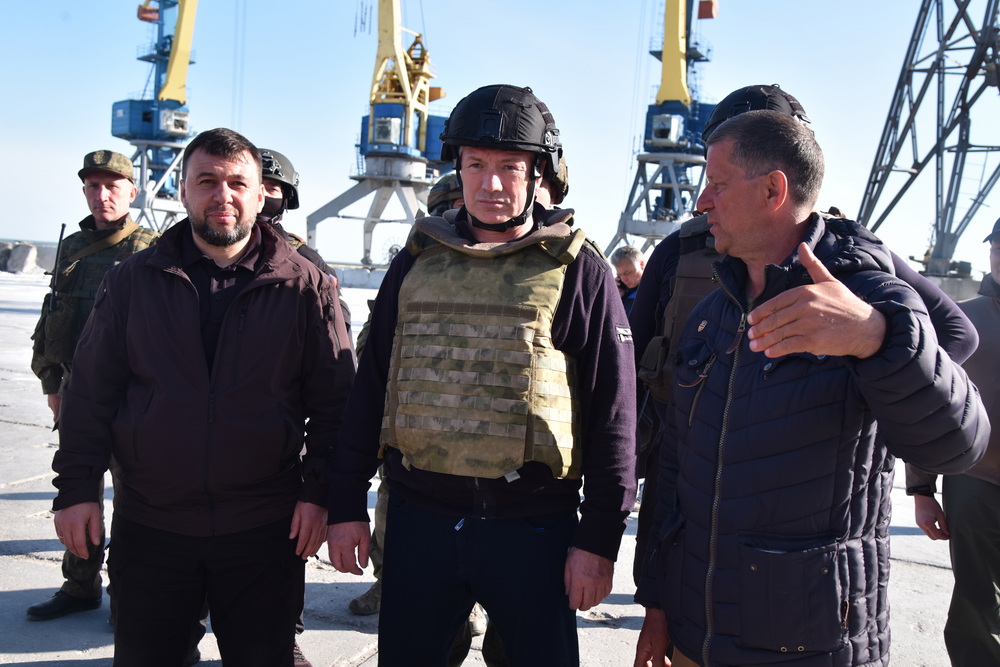
Ukrainian partisans fighting in Russian-controlled territories gave a rare interview in which they talked about the military operations against the occupiers, sharply addressing them: “You are not at home!”, reports Meduza.
The Ukrainian guerrillas’ interview with The New York Times reporters comes after several explosions in Crimea, which was illegally annexed by Moscow in 2014, and Russian President Vladimir Putin on Wednesday dismissed the commander of the Black Sea Fleet in charge of airfields. peninsula.
Without officially confirming that the Ukrainians are behind the explosions, Mykhailo Podolyak, one of the main advisers of the President of Ukraine Volodymyr Zelenskyi, said on Tuesday that the Russians can expect such explosions and in the next two to three months the armed forces, which the Ukrainians seek to create “chaos” among invaders
Svarog (the spirit of fire in Slavic mythology), one of the Ukrainian guerrillas, met with a reporter for The New York Times in Zaporizhzhia, a city in southern Ukraine about 100 kilometers north of Melitopol that was occupied by invading forces earlier this month. March
Melitopol is one of the centers of the Ukrainian resistance, with families of Russian servicemen evacuated from the city this week after several guerrilla attacks, including the bombing of the headquarters of President Vladimir Putin’s United Russia party.

One of the explosions in Crimea (PHOTO: Video)
Ukraine started training partisans even before the war
Svarog told the NYT that the Ukrainian military began training guerrillas months before Putin’s February 24 invasion, and that dozens of different organizations were involved in civilian military training.
Partizan says he also occasionally attended training sessions organized by Right Sector and National Corps, two branches of the Azov movement. Closer to the start of the war, the Ukrainian Special Operations Forces began developing a more structured and secretive program that included instructions for conducting sabotage, handling explosives, and creating weapons caches.
After the invasion began, Svarog was sent to a warehouse near Melitopol, where he found explosives, detonators, Kalashnikov assault rifles, a grenade launcher, and two pistols with silencers.
Partisans are now coordinating with the regular armed forces of Ukraine in striking targets behind the front.
Ukrainians on “black lists” of partisans
Svarog and another partisan with the call sign “Viking” say that they consider policemen, city and regional civil servants, and teachers who agreed to work under the “educational program” created by the Russians in the occupied territories to be traitors.
Already in July, the occupation authorities began the Russification of Ukrainian schools, sending teachers to Moscow for “certification”, threatening parents with the loss of their children if they did not send them to school to learn the Russian language.
The guerrillas, however, drew attention to the fact that doctors, firefighters and social workers are not included in the list of collaborators.
Svarog spoke about several missions performed by his unit in Melitopol.
In the spring, partisans replaced a car near the police station. NYT writes that as a result of the explosion, one policeman was killed and another was injured. During another operation (in which Svarog did not directly participate), partisans blew up the car of Oleg Shostak, the local head of United Russia. Shostak was injured during the explosion that occurred on August 12.

Russian Deputy Prime Minister Marat Khusnullin (center) visits Mariupol port accompanied by Denys Pushylin, leader of the self-proclaimed Donetsk Republic (left). Pusilin was born in Ukraine.
Appeal of the partisans to the occupiers and collaborators
But Svarog says it’s not so important whether the separatists and collaborators attacked by the guerrillas live or die, but the much more important signal the resistance sends: “You’re never safe.”
“Our goal is to show the occupiers that they are not at home, that they should not settle here, that they should not sleep peacefully,” he emphasizes.
As for the teachers, who are considered traitors, the partisans say that no one will attack them, but the resistance intends to warn them against studying the Russian school curriculum.
“Viking” says that leaflets with photos and names of school principals who decided to open educational institutions in September have already appeared in Melitopol.
“There will be punishment for cooperation with the Russians,” it says.
Follow the latest events of the 177th day of the war in Ukraine LIVETEXT on HOTNEWS.RO.
Source: Hot News RU
James Springer is a renowned author and opinion writer, known for his bold and thought-provoking articles on a wide range of topics. He currently works as a writer at 247 news reel, where he uses his unique voice and sharp wit to offer fresh perspectives on current events. His articles are widely read and shared and has earned him a reputation as a talented and insightful writer.